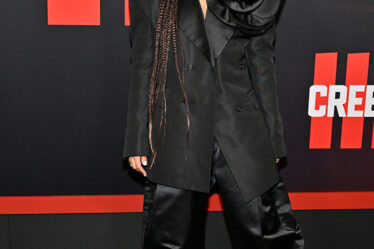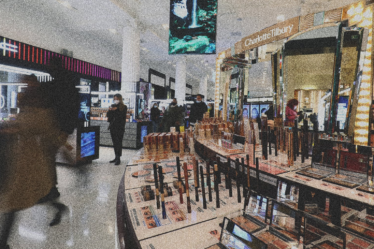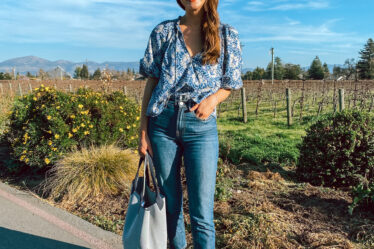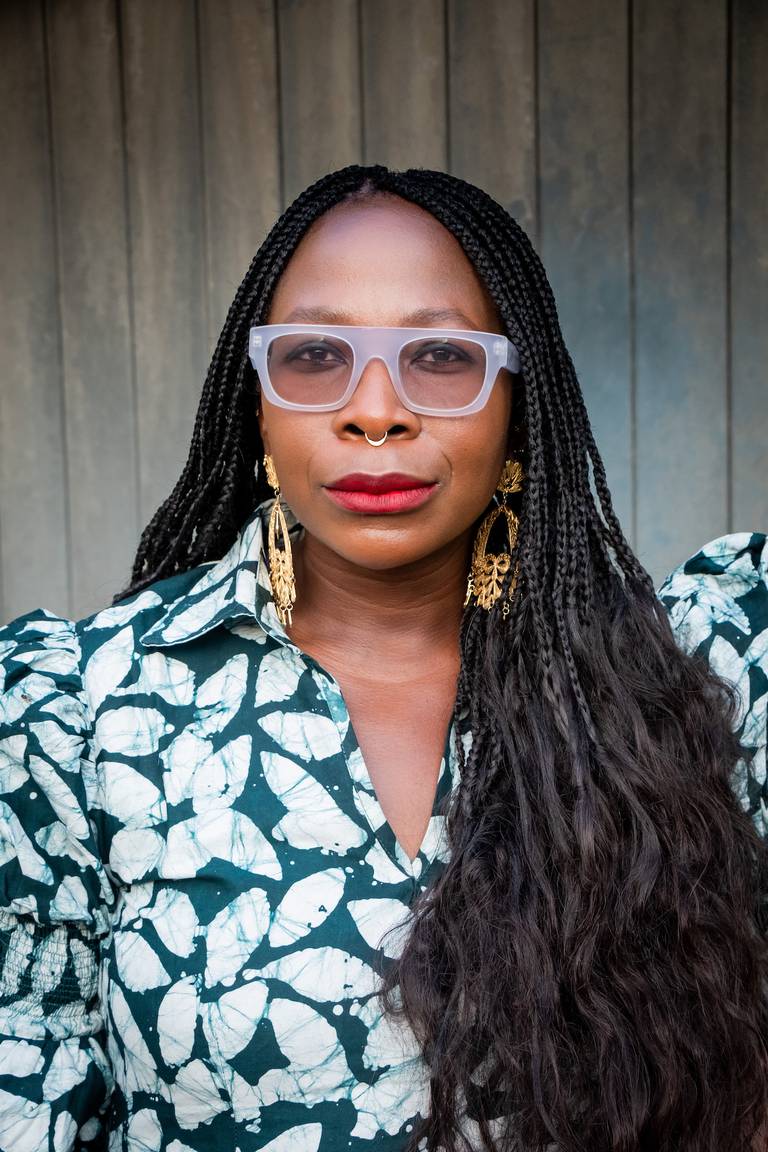
For those from a non-fashion background looking to launch a brand, the barriers to entry can already seem vast without the technical skills or contacts acquired through formal training.
For those also from an underrepresented background, those challenges can loom even larger — 68 percent of Black employees reported greater inaccessibility to the fashion industry versus 37 percent of white employees, according to the CFDA x PVH State of Diversity, Equity and Inclusion in Fashion 2021 report.
Seeking to address the racial disparity in the fashion industry, Raisefashion was founded in July 2020, with leading industry executives seizing on the opportunity — and responsibility — to better support and foster BIPOC talent and BIPOC-owned businesses, whether they already hail from the fashion workforce or were new to the space.
“We have evolved our mission over the last few years to ensure that we are bridging the knowledge and resource gap that we have observed designers struggling with,” Felita Harris, Raisefashion’s executive director and founding board member, previously told BoF.
To help support BIPOC design talent, and address the skills gap for those without formal training, Raisefashion launched its brand fellowship programme for which 8 selected BIPOC designers receive a $15,000 grant and gain key strategic insight into building a successful brand. The participants also receive access to a wide range of mentors who offer workshops on: brand mission; fashion cycle; production and sourcing; logistics and operations; revenue channels; communication; finance; and investment readiness.
Now, BoF sits down with four designers from the programme without formal fashion training, to better understand the challenges and opportunities that have arisen in launching their brands today, and to learn how Raisefashion has helped broaden their knowledge base.
Busayo NYC by Busayo Olupona
Former lawyer Busayo Olupona began her namesake brand 10 years ago. Busayo NYC is an apparel and accessories brand that utilises hand-dyed Nigerian prints and textiles, designed to bring the rich culture of West Africa to its clients.
What is the mission and vision behind your brand?
When I first started thinking of my brand, the period of time coincided with my going back to Nigeria to reconnect with my family. I was travelling around Lagos and I met a group of men who dyed fabric by hand. We have something in our culture called adire — our version of the Indonesian hand-dying technique batik — and I decided to learn how to do it.
I started making clothes for myself, and had this desire to create a brand that was immersed in Yoruba culture and tradition, but also brought an American sensibility.
How has Raisefashion and the programme helped you and your business?
I have participated in a lot of incubators, which were all fantastic. But with Raisefashion, the door cracked open.
There has been such a generosity of spirit — for example, Amazon donated studio space to us, so all you had to do was bring our clothes — models, makeup artists, the photographer, everything else was there. It is not performative.
The industry needs this because some of the brands I came up with, all people doing really interesting, dynamic, crazy stuff — the doors were just shut. If only some people have the opportunity to enter, you are missing a huge part of what your market wants.
What advice would you give someone starting a fashion brand today?
Mentorship is critical. For example, I have an amazing mentor, Hillary Cullum — a former buyer at Neiman Marcus — which was supposed to be a three-month commitment. Three years later, we still speak every Friday. She has been a force and a helpful companion as I have navigated relationships with large retailers.
I think about the people I mentor now, who heard me speak and reached out with questions — and they keep reaching out and reaching out. Those relationships have flowered into something that feels real and authentic.
Also, be a consummate student and be kind. Fashion is the smallest industry and I am struck by how tiny it is, especially in New York. Always show up as your best self, even when it is challenging, even when maybe you are upset about something — really take the ego out of it.
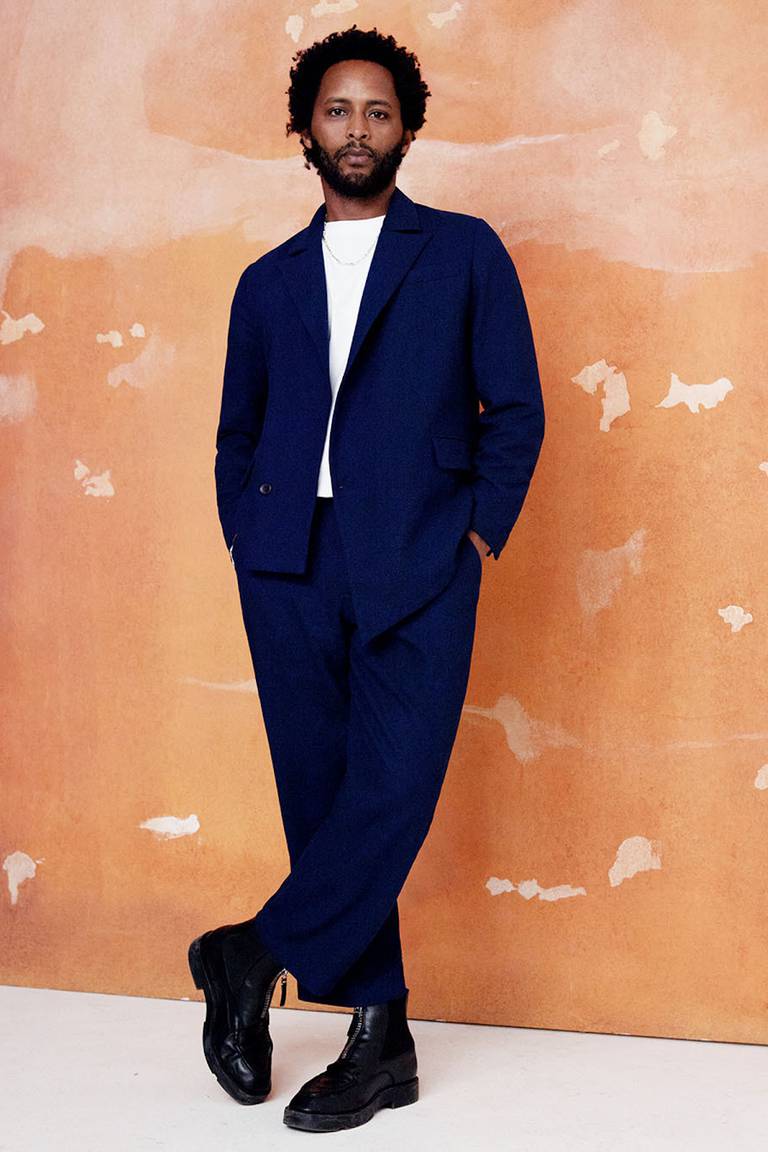
Àwet New York by Àwet Woldegebriel
In 2020, Áwet Woldegebriel launched his eponymous fashion label, offering collections for men and women. Woldegebriel came to the US from Eritrea in 2000 as a refugee. He studied for a Bachelor of Arts in International Relations at Oglethorpe University and previously worked for the United Nations.
What is the mission and vision behind your brand?
My father was a garment worker and tailor in Eritrea, so I grew up seeing the artistry of what a fabric meant from beginning to end. Our brand started in November 2020, at the time, I was working as an officer for the UN, and I started wondering how the garment workers and tailors were doing because they could not work from home during lockdowns.
I Googled a garment house in New York City that was owned by a small, third-generation Greek family with about 40 employees. They told me they were about to let go of all of them because there were no orders, and I said, “I’ve started a brand, and I’ll call the first collection a promise to New York and 100 percent of the proceeds will go to you and hopefully that will do my part to help alleviate this situation for you guys.”
So, from that promise I made the collection in June, we launched in November 2020 with luxury loungewear. We made a hat that weighed just eight ounces — the lightest in the market. Then, joggers and hoodies. We sold nearly a quarter million dollars worth of those three products within a few months, and last year we saw a 420 percent increase in our direct-to-consumer business. Our mission is to continue to create timeless pieces.
What key challenges have you faced when launching your brand?
For a long time, especially as BIPOC brands, we just did not feel that there was enough room for all of us. And it did not come because we learned it — it was taught to us. So, Raise has helped in so many ways to break that cycle of trauma through incredible commitment.
Our notoriety has grown because leaders in the fashion industry have all come together and said there needs to be change and make sure that there is a diversification of the industry — something the industry is not known for. Raise really does the work. I have been a part of other initiatives and other incubator programmes, but this one has blown my mind.
How has Raisefashion and the programme helped you and your business?
Every Wednesday, there’s about four hours worth of masterclasses given by top fashion industry experts. It’s a game changer. I am so appreciative of all of them. I hosted all the Raise designers as well as the board at my house last week — I just felt so incredibly humbled to see such passionate individuals in fashion come together and celebrate the new generation of designers.
Elizabeth von der Goltz, the CEO of Browns, supported us in bringing our BIPOC showroom to Paris Fashion Week. I’ll be opening up a showroom for Black-owned brands and BIPOC brands — and again, no fees, no payment. It was all through our connections to bring the buyers through the Raise network that we were able to do that. They get their hands dirty and make sure that things are successful, which means the world to me.
What advice would you give someone starting a fashion brand today?
At the end of the day, this is a business, and you have to look at it as such. You look at fashion weeks but what happens behind the scenes is the real story — when we got our first order from Saks Fifth Avenue, I slept three hours a day for a whole week in between packing.
Understand your customers and where people are coming to you. For us, people came to us because our design was rooted in community and fashion is a way to bring people together. What is your community coming to you for? What is that story that you’re telling? That’s very important for a brand.
Also, seek mentorship. Get in someone’s DMs, humble yourself to say, “I need to know what you have already learned.” As creatives, we have a hard time asking those kinds of questions. But the best way that you can be a leader of your brand is that you are constantly asking for guidance from the right people. It will do wonders and will save you a lot of time and money.
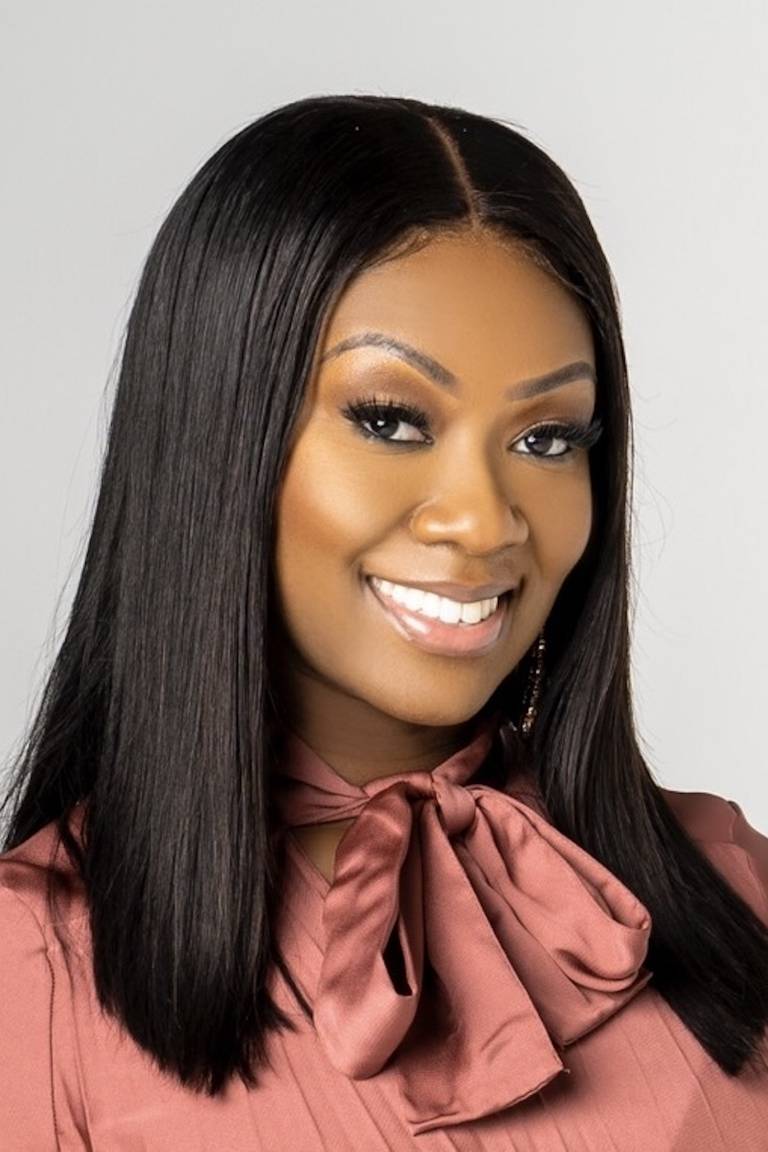
Keeyahri by Keya Martin
Founded by Keya Martin in 2018 following a career in the supply chain, Keeyahri is a luxury footwear brand focused on innovation and craftsmanship, with stockists including Nordstrom.
What is the mission and vision behind your brand?
My background is in supply chain management and I didn’t see myself climbing up the corporate ladder. I absolutely loved footwear, so I took a leap of faith and started designing shoes.
We are focused on innovation, craftsmanship, textiles and celebrating women. I name every shoe after someone that I know, someone who has inspired me — a stylist, a customer. I have one who has purchased eight pairs of shoes so far, and so I name my shoes after those customers who believed in the brand — developing a sense of community in the process.
British Vogue was the first magazine to reach out to me and the brand just grew from there. We have since featured in Harper’s Bazaar, Essence and Forbes. Then, we eventually were able to launch in Nordstrom in 2021 and this year, we will be launching in Saks Fifth Avenue.
How has Raisefashion and the programme helped you and your business?
Raise has been a game changer because I didn’t go to school for fashion, so I didn’t have much experience.
Raise is heavily connected, it’s just a matter of reaching out to them. For example, I just returned home from a Raisefashion event where I was able to meet up and present the collection to lots of different resellers. There was a point where I didn’t have the funds to pay for my shoe boxes for a Nordstrom and Saks order, so Raise has helped with grants. It’s been a tremendous help.
On a personal note, I have moments where I feel drained. I was recently talking to a leader on a Zoom call and she felt my energy and said, “hey, let’s not talk about business, let’s just get you through today.” So, mentorship has been a big factor.
What advice would you give someone starting a fashion brand today?
Be vulnerable. I’m naturally an introvert, but when it comes to my brand and building this business, I have so much passion and drive around it. I want to see it flourish. So, whenever I get a chance to talk to someone who made a resource or connection, I’m telling my story. You have to be open and willing to connect with people in an emotional way and you never know who may help you.
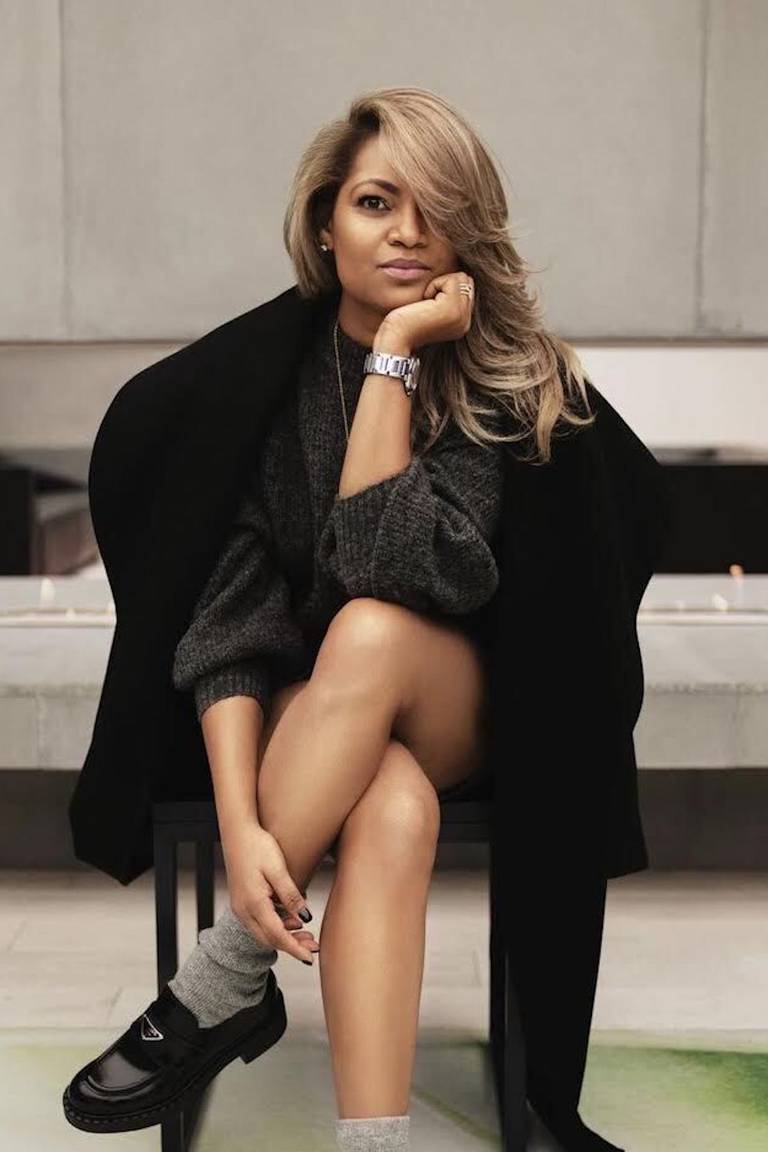
Concept26 by Shari Smith
Concept26 is a fine jewellery brand that went to market in 2020, founded by Shari Smith, a former engineer. Its collections offer timeless jewellery that is deeply rooted in ethical and sustainable principles, thus creating a positive impact on both people and the planet.
What is the mission and vision behind your brand?
I come from an engineering background, which allowed me to build processes and procedures for many businesses in the jewellery industry. While I was working with all of these top industry leaders in the diamond and jewellery industry, I became so invested in jewellery — the entire process from start to finish, understanding that it is a labour of love.
Everything is handcrafted at Concept26 and our mission is to deliver an inclusive experience that really celebrates and enhances each wearer. We also are committed to building the community and empowering women, educating them to buy more consciously.
How has Raisefashion and the programme helped you and your business?
They have incredible mentor opportunities with leading industry leaders. The masterclasses have been helpful and insightful — it’s a lot of knowledge that we are receiving on how to run a business from bottom to top, which is great. I am bootstrapping my business too, so the grants they offer have also helped tremendously with developing new collections. This will change the trajectory of my business.
What advice would you give someone who’s looking to start a fashion brand today?
You have to hustle and network in order to succeed. We can get the smartest person in the room with the best ideas and the best work ethic, but if you don’t hustle, you won’t grow.
Never stop building meaningful relationships. Whether it’s on the customer side, or people within your industry or network, those relationships are going to help you in the long run.
This feature is part of a community partnership with Raisefashion.

